It's no secret that a lot of Americans, regardless of party affiliation, are distressed with the state of politics and political discourse. The books for this post are meant to help look at how we got where we are and to examine a few key issues that seem intractable, but perhaps shouldn't be.
Pulitzer Prize winner Hedrick Smith’s new book is an extraordinary achievement, an eye-opening account of how, over the past four decades, the American Dream has been dismantled and we became two Americas.
In his bestselling The New Russians, Smith took millions of readers inside the Soviet Union. In The Power Game, he took us inside Washington’s corridors of power. Now Smith takes us across America to show how seismic changes, sparked by a sequence of landmark political and economic decisions, have transformed America. As only a veteran reporter can, Smith fits the puzzle together, starting with Lewis Powell’s provocative memo that triggered a political rebellion that dramatically altered the landscape of power from then until today.
This is a book full of surprises and revelations—the accidental beginnings of the 401(k) plan, with disastrous economic consequences for many; the major policy changes that began under Jimmy Carter; how the New Economy disrupted America’s engine of shared prosperity, the “virtuous circle” of growth, and how America lost the title of “Land of Opportunity.” Smith documents the transfer of $6 trillion in middle-class wealth from homeowners to banks even before the housing boom went bust, and how the U.S. policy tilt favoring the rich is stunting America’s economic growth.
This book is essential reading for all of us who want to understand America today, or why average Americans are struggling to keep afloat. Smith reveals how pivotal laws and policies were altered while the public wasn’t looking, how Congress often ignores public opinion, why moderate politicians got shoved to the sidelines, and how Wall Street often wins politically by hiring over 1,400 former government officials as lobbyists.
Smith talks to a wide range of people, telling the stories of Americans high and low. From political leaders such as Bill Clinton, Newt Gingrich, and Martin Luther King, Jr., to CEOs such as Al Dunlap, Bob Galvin, and Andy Grove, to heartland Middle Americans such as airline mechanic Pat O’Neill, software systems manager Kristine Serrano, small businessman John Terboss, and subcontractor Eliseo Guardado, Smith puts a human face on how middle-class America and the American Dream have been undermined.
Based on 18 months of reporting, Woodward's 17th book The Price of Politics is an intimate, documented examination of how President Obama and the highest profile Republican and Democratic leaders in the United States Congress attempted to restore the American economy and improve the federal government’s fiscal condition over three and one half years.
Drawn from memos, contemporaneous meeting notes, emails, and in-depth interviews with the central players, The Price of Politics addresses the key issue of the presidential and congressional campaigns: the condition of the American economy and how and why we got there. Providing verbatim, day-by-day, even hour-by-hour accounts, the book shows what really happened, what drove the debates, negotiations, and struggles that define, and will continue to define, the American future.
Pulitzer Prize winner Hedrick Smith’s new book is an extraordinary achievement, an eye-opening account of how, over the past four decades, the American Dream has been dismantled and we became two Americas.
In his bestselling The New Russians, Smith took millions of readers inside the Soviet Union. In The Power Game, he took us inside Washington’s corridors of power. Now Smith takes us across America to show how seismic changes, sparked by a sequence of landmark political and economic decisions, have transformed America. As only a veteran reporter can, Smith fits the puzzle together, starting with Lewis Powell’s provocative memo that triggered a political rebellion that dramatically altered the landscape of power from then until today.
This is a book full of surprises and revelations—the accidental beginnings of the 401(k) plan, with disastrous economic consequences for many; the major policy changes that began under Jimmy Carter; how the New Economy disrupted America’s engine of shared prosperity, the “virtuous circle” of growth, and how America lost the title of “Land of Opportunity.” Smith documents the transfer of $6 trillion in middle-class wealth from homeowners to banks even before the housing boom went bust, and how the U.S. policy tilt favoring the rich is stunting America’s economic growth.
This book is essential reading for all of us who want to understand America today, or why average Americans are struggling to keep afloat. Smith reveals how pivotal laws and policies were altered while the public wasn’t looking, how Congress often ignores public opinion, why moderate politicians got shoved to the sidelines, and how Wall Street often wins politically by hiring over 1,400 former government officials as lobbyists.
Smith talks to a wide range of people, telling the stories of Americans high and low. From political leaders such as Bill Clinton, Newt Gingrich, and Martin Luther King, Jr., to CEOs such as Al Dunlap, Bob Galvin, and Andy Grove, to heartland Middle Americans such as airline mechanic Pat O’Neill, software systems manager Kristine Serrano, small businessman John Terboss, and subcontractor Eliseo Guardado, Smith puts a human face on how middle-class America and the American Dream have been undermined.
Based on 18 months of reporting, Woodward's 17th book The Price of Politics is an intimate, documented examination of how President Obama and the highest profile Republican and Democratic leaders in the United States Congress attempted to restore the American economy and improve the federal government’s fiscal condition over three and one half years.
Drawn from memos, contemporaneous meeting notes, emails, and in-depth interviews with the central players, The Price of Politics addresses the key issue of the presidential and congressional campaigns: the condition of the American economy and how and why we got there. Providing verbatim, day-by-day, even hour-by-hour accounts, the book shows what really happened, what drove the debates, negotiations, and struggles that define, and will continue to define, the American future.
David Wessel, the Pulitzer-Prize-winning reporter, columnist, and bestselling author of In Fed We Trust,
dissects the federal budget: a topic that is fiercely debated today in
the halls of Congress and the media, and yet is misunderstood by the
American public.
In a sweeping narrative about the people and the politics behind the budget, Wessel looks at the 2011 fiscal year (which ended September 30) to see where all the money was actually spent, and why the budget process has grown wildly out of control. Through the eyes of key people--Jacob Lew, White House director of the Office of Management and Budget; Douglas Elmendorf, director of the Congressional Budget Office; Blackstone founder and former Commerce Secretary Pete Peterson; and more--Wessel gives readers an inside look at the making of our unsustainable budget.
In this powerful and culminating work about a group of inner-city children he has known for many years, Jonathan Kozol returns to the scene of his prize-winning books Rachel and Her Children and Amazing Grace, and to the children he has vividly portrayed, to share with us their fascinating journeys and unexpected victories as they grow into adulthood.
For nearly fifty years Jonathan has pricked the conscience of his readers by laying bare the savage inequalities inflicted upon children for no reason but the accident of being born to poverty within a wealthy nation. A winner of the National Book Award, the Robert F. Kennedy Book Award, and countless other honors, he has persistently crossed the lines of class and race, first as a teacher, then as the author of tender and heart-breaking books about the children he has called “the outcasts of our nation’s ingenuity.” But Jonathan is not a distant and detached reporter. His own life has been radically transformed by the children who have trusted and befriended him.
Never has this intimate acquaintance with his subjects been more apparent, or more stirring, than in Fire in the Ashes, as Jonathan tells the stories of young men and women who have come of age in one of the most destitute communities of the United States. Some of them never do recover from the battering they undergo in their early years, but many more battle back with fierce and, often, jubilant determination to overcome the formidable obstacles they face. As we watch these glorious children grow into the fullness of a healthy and contributive maturity, they ignite a flame of hope, not only for themselves, but for our society.
The urgent issues that confront our urban schools – a devastating race-gap, a pathological regime of obsessive testing and drilling students for exams instead of giving them the rich curriculum that excites a love of learning – are interwoven through these stories. Why certain children rise above it all, graduate from high school and do well in college, while others are defeated by the time they enter adolescence, lies at the essence of this work.
In a sweeping narrative about the people and the politics behind the budget, Wessel looks at the 2011 fiscal year (which ended September 30) to see where all the money was actually spent, and why the budget process has grown wildly out of control. Through the eyes of key people--Jacob Lew, White House director of the Office of Management and Budget; Douglas Elmendorf, director of the Congressional Budget Office; Blackstone founder and former Commerce Secretary Pete Peterson; and more--Wessel gives readers an inside look at the making of our unsustainable budget.
In this powerful and culminating work about a group of inner-city children he has known for many years, Jonathan Kozol returns to the scene of his prize-winning books Rachel and Her Children and Amazing Grace, and to the children he has vividly portrayed, to share with us their fascinating journeys and unexpected victories as they grow into adulthood.
For nearly fifty years Jonathan has pricked the conscience of his readers by laying bare the savage inequalities inflicted upon children for no reason but the accident of being born to poverty within a wealthy nation. A winner of the National Book Award, the Robert F. Kennedy Book Award, and countless other honors, he has persistently crossed the lines of class and race, first as a teacher, then as the author of tender and heart-breaking books about the children he has called “the outcasts of our nation’s ingenuity.” But Jonathan is not a distant and detached reporter. His own life has been radically transformed by the children who have trusted and befriended him.
Never has this intimate acquaintance with his subjects been more apparent, or more stirring, than in Fire in the Ashes, as Jonathan tells the stories of young men and women who have come of age in one of the most destitute communities of the United States. Some of them never do recover from the battering they undergo in their early years, but many more battle back with fierce and, often, jubilant determination to overcome the formidable obstacles they face. As we watch these glorious children grow into the fullness of a healthy and contributive maturity, they ignite a flame of hope, not only for themselves, but for our society.
The urgent issues that confront our urban schools – a devastating race-gap, a pathological regime of obsessive testing and drilling students for exams instead of giving them the rich curriculum that excites a love of learning – are interwoven through these stories. Why certain children rise above it all, graduate from high school and do well in college, while others are defeated by the time they enter adolescence, lies at the essence of this work.
Receiving the Nobel Peace Prize in December
2001, United Nations Secretary-General Kofi Annan spoke to a world
still reeling from the terrorist attacks of September 11. “Ladies and
Gentlemen,” proclaimed Annan, “we have entered the third millennium
through a gate of fire. If today, after the horror of 11 September, we
see better, and we see further—we will realize that humanity is
indivisible. New threats make no distinction between races, nations, or
regions.” Yet within only a few years the world was more divided than
ever—polarized by the American invasion of Iraq, the Arab-Israeli
conflict, the escalating civil wars in Africa, and the rising influence
of China.
Interventions: A Life in War and Peace is the story of Annan’s remarkable time at the center of the world stage. After forty years of service at the United Nations, Annan shares here his unique experiences during the terrorist attacks of September 11; the American invasions of Iraq and Afghanistan; the war between Israel, Hizbollah, and Lebanon; the brutal conflicts of Somalia, Rwanda, and Bosnia; and the geopolitical transformations following the end of the Cold War. With eloquence and unprecedented candor, Interventions finally reveals Annan’s unique role and unparalleled perspective on decades of global politics.
The first sub-Saharan African to hold the position of Secretary-General, Annan has led an extraordinary life in his own right. His idealism and personal politics were forged in the Ghanaian independence movement of his adolescence, when all of Africa seemed to be rising as one to demand self-determination. Schooled in Africa, Europe, and the United States, Annan ultimately joined the United Nations in Geneva at the lowest professional level in the still young organization. Annan rose rapidly through the ranks and was by the end of the Cold War prominently placed in the dramatically changing department of peacekeeping operations. His stories of Presidents Clinton and Bush, dictators like Saddam Hussein and Robert Mugabe, and public figures of all stripes contrast powerfully with Annan’s descriptions of the courage and decency of ordinary people everywhere struggling for a new and better world.
Showing the successes of the United Nations, Annan also reveals the organization’s missed opportunities and ongoing challenges—inaction in the Rwanda genocide, continuing violence between Israelis and Palestinians, and the endurance of endemic poverty. Yet Annan’s great strength in this book is his ability to embed these tragedies within the context of global politics, demonstrating how, time and again, the nations of the world have retreated from the UN’s founding purpose. From the pinnacle of global politics, Annan made it his purpose to put the individual at the center of every mission for peace and prosperity.
A personal biography of global statecraft, Annan’s Interventions is as much a memoir as a guide to world order—past, present, and future.
Published in 1957, Atlas Shrugged was Ayn Rand's greatest achievement and last work of fiction. In this novel she dramatizes her unique philosophy through an intellectual mystery story that integrates ethics, metaphysics, epistemology, politics, economics, and sex.
Set in a near-future U.S.A. whose economy is collapsing as a result of the mysterious disappearance of leading innovators and industrialists, this novel presents an astounding panorama of human life-from the productive genius who becomes a worthless playboy...to the great steel industrialist who does not know that he is working for his own destruction...to the philosopher who becomes a pirate...to the woman who runs a transcontinental railroad...to the lowest track worker in her train tunnels.
Peopled by larger-than-life heroes and villains, charged with towering questions of good and evil, Atlas Shrugged is a philosophical revolution told in the form of an action thriller.
Interventions: A Life in War and Peace is the story of Annan’s remarkable time at the center of the world stage. After forty years of service at the United Nations, Annan shares here his unique experiences during the terrorist attacks of September 11; the American invasions of Iraq and Afghanistan; the war between Israel, Hizbollah, and Lebanon; the brutal conflicts of Somalia, Rwanda, and Bosnia; and the geopolitical transformations following the end of the Cold War. With eloquence and unprecedented candor, Interventions finally reveals Annan’s unique role and unparalleled perspective on decades of global politics.
The first sub-Saharan African to hold the position of Secretary-General, Annan has led an extraordinary life in his own right. His idealism and personal politics were forged in the Ghanaian independence movement of his adolescence, when all of Africa seemed to be rising as one to demand self-determination. Schooled in Africa, Europe, and the United States, Annan ultimately joined the United Nations in Geneva at the lowest professional level in the still young organization. Annan rose rapidly through the ranks and was by the end of the Cold War prominently placed in the dramatically changing department of peacekeeping operations. His stories of Presidents Clinton and Bush, dictators like Saddam Hussein and Robert Mugabe, and public figures of all stripes contrast powerfully with Annan’s descriptions of the courage and decency of ordinary people everywhere struggling for a new and better world.
Showing the successes of the United Nations, Annan also reveals the organization’s missed opportunities and ongoing challenges—inaction in the Rwanda genocide, continuing violence between Israelis and Palestinians, and the endurance of endemic poverty. Yet Annan’s great strength in this book is his ability to embed these tragedies within the context of global politics, demonstrating how, time and again, the nations of the world have retreated from the UN’s founding purpose. From the pinnacle of global politics, Annan made it his purpose to put the individual at the center of every mission for peace and prosperity.
A personal biography of global statecraft, Annan’s Interventions is as much a memoir as a guide to world order—past, present, and future.
Published in 1957, Atlas Shrugged was Ayn Rand's greatest achievement and last work of fiction. In this novel she dramatizes her unique philosophy through an intellectual mystery story that integrates ethics, metaphysics, epistemology, politics, economics, and sex.
Set in a near-future U.S.A. whose economy is collapsing as a result of the mysterious disappearance of leading innovators and industrialists, this novel presents an astounding panorama of human life-from the productive genius who becomes a worthless playboy...to the great steel industrialist who does not know that he is working for his own destruction...to the philosopher who becomes a pirate...to the woman who runs a transcontinental railroad...to the lowest track worker in her train tunnels.
Peopled by larger-than-life heroes and villains, charged with towering questions of good and evil, Atlas Shrugged is a philosophical revolution told in the form of an action thriller.
Colorado senator Morgan Carroll brings us
an inside look at how state legislatures really work and how ordinary
citizens can make and change law and policy in their state and become
their own lobbyists. This hands-on guide includes practical tips, form
letters, documents, checklists, online content, and resources to empower
all citizens to help make government work for them. Take Back Your Government
is an accessible book that can teach anyone how to be an effective
advocate and a better-informed citizen and will give readers the ability
to push back the influence of paid lobbyists. This book will appeal to
people of all political persuasions.
Morgan Carroll is a Colorado state senator whose own civic activism launched her ultimate decision to run for office. She is the Colorado majority caucus chair, the chair of the Senate Judiciary Committee, and a practicing attorney. Carroll has served in the Colorado legislature since 2005, and she has conducted hundreds of town hall meetings and community seminars teaching ordinary citizens how to make and change laws.
The New York Times Magazine's original "Ethicist" Randy Cohen helps readers locate their own internal ethical compasses as he delivers answers to life's most challenging dilemmas—timeless and contemporary alike. Organized thematically in an easy-to-navigate Q&A format, and featuring line illustrations throughout, this amusing and engaging book challenges readers to think about how they would (or should) respond when faced with everyday moral challenges, from sex and love to religion, technology, and much more. Sure to ignite brain cells and spark healthy debate, Be Good is a book to refer to again and again.
Morgan Carroll is a Colorado state senator whose own civic activism launched her ultimate decision to run for office. She is the Colorado majority caucus chair, the chair of the Senate Judiciary Committee, and a practicing attorney. Carroll has served in the Colorado legislature since 2005, and she has conducted hundreds of town hall meetings and community seminars teaching ordinary citizens how to make and change laws.
The New York Times Magazine's original "Ethicist" Randy Cohen helps readers locate their own internal ethical compasses as he delivers answers to life's most challenging dilemmas—timeless and contemporary alike. Organized thematically in an easy-to-navigate Q&A format, and featuring line illustrations throughout, this amusing and engaging book challenges readers to think about how they would (or should) respond when faced with everyday moral challenges, from sex and love to religion, technology, and much more. Sure to ignite brain cells and spark healthy debate, Be Good is a book to refer to again and again.

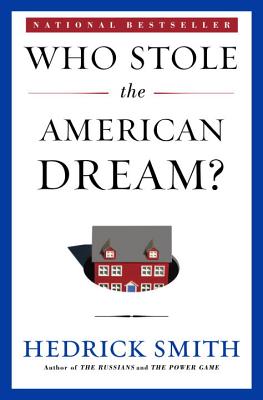
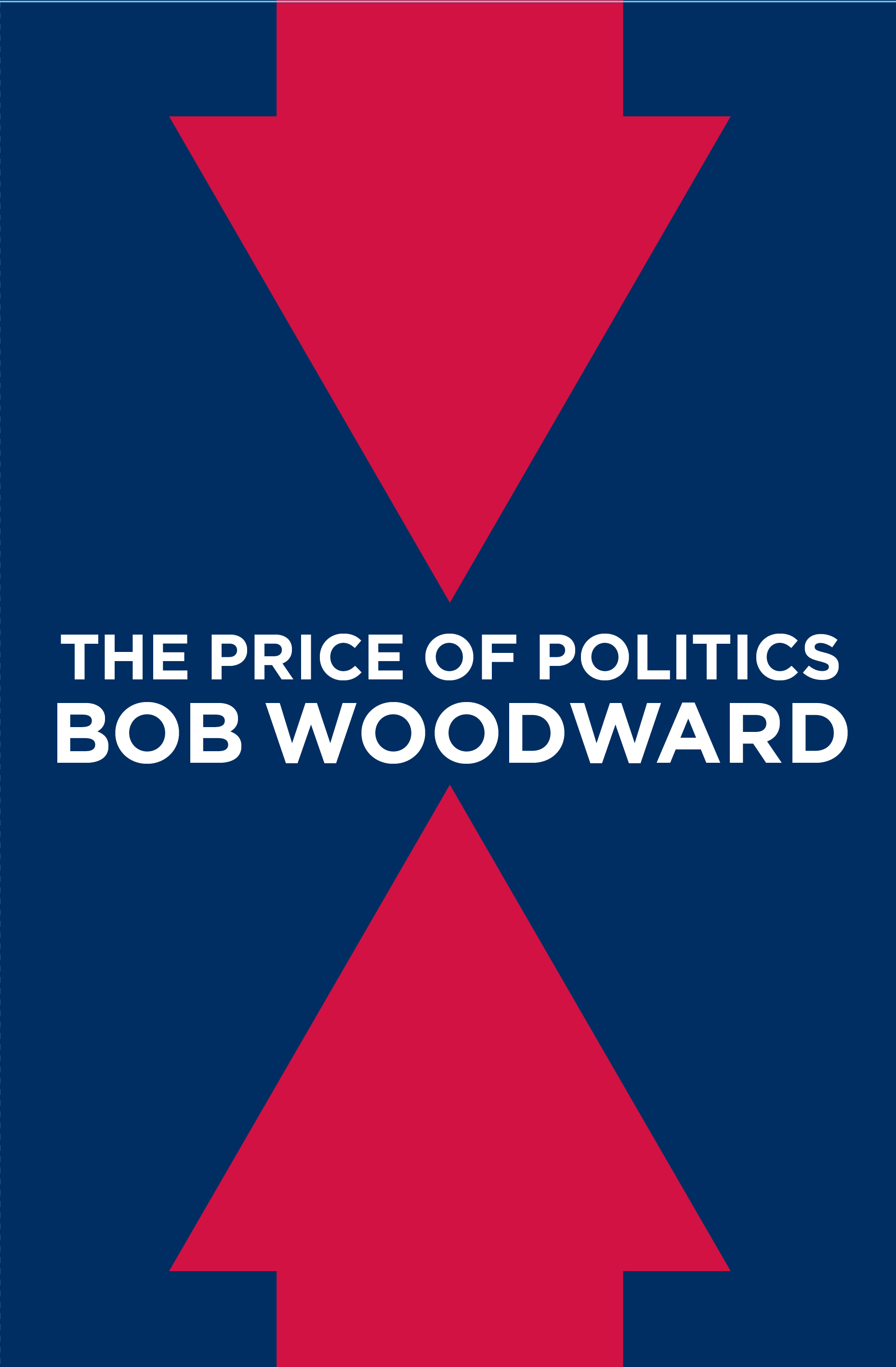
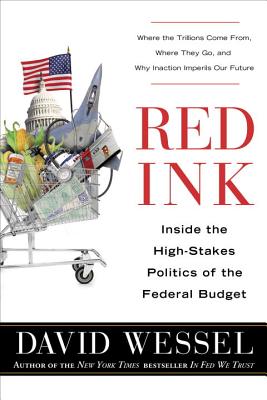
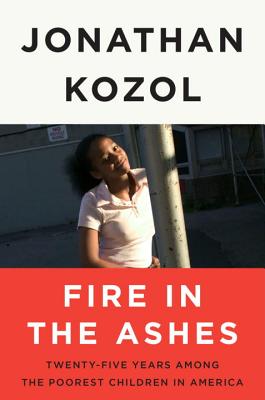
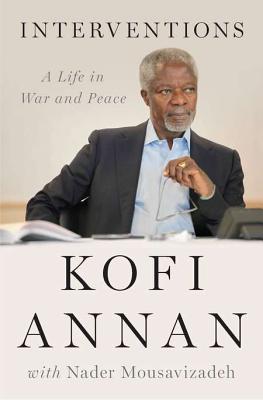
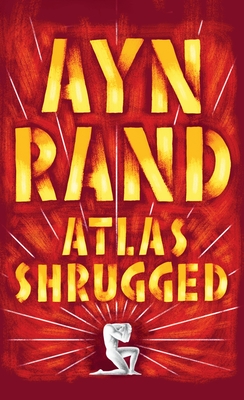
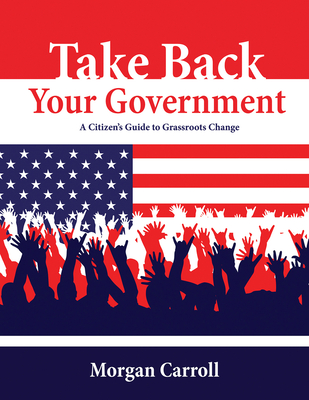
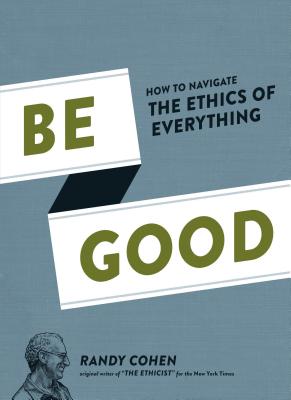
No comments:
Post a Comment